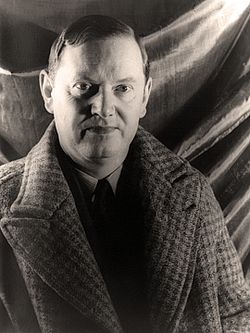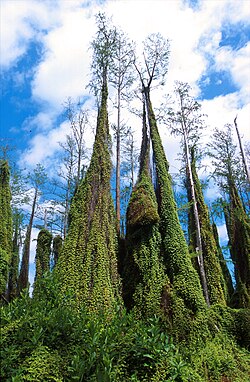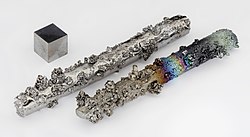
The Sunday Telegraph reported at the weekend on "suggestions that some [British politicians] have tried to rewrite history by deleting mentions of their career low-points from Wikipedia." The newspaper looked at edits to Wikipedia articles on UK Members of Parliament:
An investigation has uncovered dozens of cases where MPs' biographical pages on Wikipedia were altered to remove details of past humiliations which had been added by members of the public. Embarrassments which have been deleted include an MP who employed a male escort, an MP who lost his front bench job in a row over racist language, and a female MP whose ex-husband was arrested and deported. On every occasion, the change was made either by someone working within the parliamentary estate or by a user who appeared to have links to the MP.
One editor named in the report is suggested to be User:jamesthomas101, who had removed the controversies section from the article on Clive Betts, Labour MP for Sheffield South East. A man named James Thomas is said to be Mr Betts' partner and parliamentary assistant.
The article mentions a controversy regarding User:Tonybaldry, who reportedly changed the article on Tony Baldry three times in March 2010. According to the article, "information was removed about alleged lobbying by Mr Baldry on behalf of Milestone Trading, a diamond mining company from which a company in which he was a one-third shareholder had reportedly received payments." The article reports that the same editor deleted information about an honours controversy over which Mr Baldry had been forced to apologise in the House of Commons.
Mr Baldry responded in the report that Wikipedia's rules "are self-serving rules of engagement. It's impracticable to sue Wikipedia so the only thing you can do is to hope that the entries are accurate. It seems wholly unreasonable that people can go onto the website and simply write stuff that is inaccurate or libellous about public figures. I'm not sure who one can rely on unless oneself to correct the information. I was simply trying to ensure that it wasn't libellous and that it wasn't seriously misleading."
The article lists numerous other occasions where articles on members of parliament have been altered from inside the building, including instances where entries regarding Speaker John Bercow and former Cabinet minister Caroline Flint had been changed using parliamentary computers. The newspaper reported that:
"The Wikipedia entry for Harriet Harman, the acting Labour leader, was changed in July 2008 by a parliamentary user to delete a reference to a protest on the roof of her London house by Fathers 4 Justice campaigners which had taken place the previous month. The section has since been reinserted, although it has been substantially rewritten."
Also noteworthy was that in January last year the entry for former Conservative minister Nigel Waterson, who lost his seat in the May 2010 general election, "was edited from parliament to delete a reference to reports that he had been arrested for allegedly assaulting his two teenage children, before being released without charge. It was subsequently reinserted."
The Houses of Parliament have no rules prohibiting staff from changing Wikipedia entries on politicians.
The report resonates with many earlier incidents involving self-interested edits by politicians or their staff: In 2007, aides working for the Australian prime minister made many edits to articles about his government, including removing an alleged nickname of the then Australian deputy prime minister from Wikipedia's article on him. In 2006 similar editing behaviour emanating from Congressional IP addresses in Washington in 2006 received media attention (see Wikinews report and Signpost coverage).
In 2005, articles about candidates in a German regional election were edited from IP addresses of the German federal parliament (see Signpost coverage).
Reader comments

On July 8, the Wikimedia Foundation announced several changes to the Board of Trustees.
Phoebe Ayers and Arne Klempert have been elected as members of the Wikimedia Foundation's Board of Trustees by the Wikimedia chapters. The two chapter-selected seats had previously been filled by Klempert and Michael Snow (who has served as the Board's Chair for the last two years), which meant that Snow was leaving the Board. Ting Chen became the new Chair.
This is the first time the new Chapter-selected seat process was used to select the two new members. As briefly noted in an earlier Signpost issue, the chapter selection process is not public and candidates are not generally known unless they announce their candidacy themselves. According to a Q&A, this year nine candidates submitted applications or were nominated, but two of them withdrew during the process.
Some other roles changed between the existing Trustees. Stuart West became Vice-chair of the Board, taking over from Jan-Bart de Vreede who had had that role for four years, while Samuel Klein (User:SJ) took over as Secretary from Kat Walsh (User:Mindspillage).
Board Chair Ting Chen recognized the long-standing contribution of former Board Chair Michael Snow, who held that post since early 2008. Chen said of Snow, "[he] has been a loyal and devoted leader in the Wikimedia movement. I am grateful to count him as a colleague and a friend, and I know he will continue to make important contributions." A post on the Wikimedia blog read: "A huge thanks to the longstanding and substantial contribution from Michael Snow, and a warm welcome to Phoebe Ayers."
Phoebe Ayers, a valued contributor to the Signpost, spoke to the Foundation's press department. "This is an exciting and hugely important time in the history of Wikimedia", she stated. "I'm thrilled to play a greater role, and I'm honored to have been chosen by the Chapters. It's a time of flux and change and important decisions, and I can't think of a better place to put my energy." She is a highly active member of the volunteer community and has co-authored a book about the English-language Wikipedia called How Wikipedia works: and how you can be a part of It.
A press statement from the Foundation stated "there are 10 seats on the Wikimedia Foundation Board of Trustees and according to the Foundation's bylaws, three members are elected by the Wikimedia community, two are selected by the Wikimedia chapters, the Founder seat is held by Jimmy Wales, and four members are appointed by the Board itself to provide additional, specific expertise. Currently all seats on the Board of Trustees are filled." The chapters seat selection process was created in April 2008, in order to express the Board's belief that the chapters are an important player in the fulfillment of the Wikimedia mission, and that they deserve a voice in how the Wikimedia Foundation should be run.
"The chapters are very grateful for this opportunity to play a key role in the governance of the Wikimedia Foundation", offered Thomas Dalton, Treasurer of Wikimedia UK and moderator of the chapter board seat selection process. "We received nominations of several very highly qualified candidates and had a very difficult decision to make. We are confident that our chosen candidates will be able to help guide the Foundation as it continues its rapid growth and support of the ever-increasing success of the Wikimedia projects. Michael Snow's service to the board and to the Wikimedia movement, has been exemplary and we're excited he has agreed to join our Advisory Board and continue to work with the movement."
From July 9 to 11, the sixth annual Wikimania conference took part at the Baltic Philharmonic in Gdańsk, Poland.
According to the organizers the event was attended by over 400 participants. As announced by the Program Chair, Jacek Jankowski, the Call for Participation had yielded 170 submissions, of which 129 were accepted, resulting in a busy schedule of presentations mostly running in four parallel tracks, posters, etc. (see also last week's preview).
Sessions were streamed live from all conference rooms, and the recordings will be made available online (see this week's Technology Report).
In her opening speech, the Wikimedia Foundation's executive director Sue Gardner mentioned the strategic planning process and the five-year plan coming out of it, as well as the expansion of Foundation staff planned for next year (generating media coverage, see this week's In the news).
The presentation by Erik Möller, the deputy director of the Wikimedia foundation, was titled Beyond the Encyclopedia: The frontiers of free knowledge (a follow-up on Ten things that will be free, Jimmy Wales' keynote speech at Wikimania 2005, that had in turn been inspired by Hilbert's problems). Möller gave an overview of free knowledge projects other than Wikipedia, both those run by Wikimedia and the most promising ones outside the Foundation, such as OpenStreetMap and Thingiverse. He assessed the opportunities and difficulties for each of Wikipedia's sister projects. He was most concerned about Wikiversity, which he said suffers from the lack of a clear mission statement and had "serious governance issues" (see also Signpost coverage).
Saturday saw the first ever screening of Truth in Numbers, a documentary about Wikipedia whose completion has long been awaited (at Wikimania 2007, a trailer and some clips had already been shown). In the discussion following the screening, with the two filmmakers, Andrew Lih and Jimmy Wales as panelists, several Wikipedians lauded the film. However, User:Witty lama (Liam Wyatt) said he felt "attacked" by the movie, which quoted many critics without allowing room to address their criticism. Sue Gardner did not share his concern, noting that it should become apparent to the viewers that the critics mostly belonged to an older generation struggling with the change that Wikipedia represented.
The tagline featured on the conference T-shirts – "Free Knowledge in the City of Freedom" – tied Wikimedia values to the history of Gdańsk, a notion that had already been present in the organizers' bid (see 2008 interview by Wikinews). Saturday's conference party took place in a location on the shipyard area where workers led by Lech Wałęsa had defied communist rulers in a 1980 strike leading to the Solidarność movement, and at the closing ceremony a local representative relayed greetings from Wałęsa, noting that he was a frequent user of Wikipedia.
LiAnna Davis, the communications associate for the Wikimedia Foundation's new Public Policy Initiative (a project collaborating with U.S. educational institutions to improve Wikipedia coverage on public policy topics, see previous Signpost coverage) invited Wikipedians to join in an article assessment drive that started last week:
We're finalizing our list of professors who will be participating in the Initiative for the fall, so stay tuned for more information about that but at the moment, we're in the middle of an article assessment drive, and we encourage everyone to join us. Our on-Wikipedia home is the WikiProject United States Public Policy, and we've started a challenge to tag and assess as many articles relevant to our project as you can."
— LiAnna Davis, Update on the Public Policy Initiative
The Initiative is also looking for experienced Wikipedians to act as "Campus Ambassadors" and "Online Ambassadors", helping students to learn editing Wikipedia.
Reader comments
The Foundation's 2010–11 annual plan (see last week's coverage) and its 2010-15 strategic plan (see earlier Signpost coverage) have been receiving media attention following the keynote speech of its executive director, Sue Gardner, at Wikimania (see also this week's News and notes):
[A] five-year strategic planning project, which is still being worked on (and lives on an editable wiki), resulted in the goals that Ms. Gardner outlined today. She also stressed that the expansion plan goals involved input from Wikipedians: 1,000 people working on the strategy, which included 900 separate proposals."
— Noam Cohen, "Wikipedia’s Foundation Plans Expansion". The New York Times
"Many of the new employees will work either at marketing Wikipedia to could-be contributors, or providing technical support to keep them from getting flustered. “Nobody knows what this will look like”, executive director Sue Gardner told the Times. Because yes, the company’s plans are being managed on a wiki."
— Paul Boutin, "Wikipedia seeks fresh blood". VentureBeat
"Wikipedia is one of the most popular websites in the world, yet, unlike pretty much every other website its size, it has no direct revenue. Operated by Wikimedia, a non-profit organization, all of the site’s funding comes from donations. Operating a top 10 site is not cheap, though, and Wikimedia has struggled each year to drum up more donations. Yet, the latest plans are to almost double its yearly budget and double its staff in the next year, all of this while increasing editorial contributions and the number of visitors."
— Lucian Parfeni, "Wikipedia wants 680 million visitors by 2015". Softpedia
American website newshounds.us (a Fox News watchdog) has noticed an unusual similarity between a passage from the Wikipedia article on Phillis Wheatley to a statement by historian David Barton on a show with Glenn Beck about women in the Revolutionary War:
Barton said this about Wheatley: “She was bought by the Wheatley family and adopted her as a daughter. She became a daughter ... a lot of Christian families would adopt slaves, buy them from slaves to make them part of the family and to keep them from going into slavery.” Now check out Wikipedia: “Wheatley and his wife Susanna adopted her as their daughter to keep her from becoming a slave. This was common in Christian families of the time who were anti-slavery.”
— Glenn Beck’s Resident “Historian”, David Barton, edits or uses Wikipedia to promote historical lie?
The News Hounds writer claims she is unable to find any confirmation of the idea that this happened or that Christians would adopt slave children, and wondered if either Barton was getting his history from Wikipedia or if Barton himself was editing Wikipedia to push his views.
Looking at the logs, the statement was introduced to the Wikipedia article on July 4 ([1]), but it has since been reverted, while the Glenn Beck show was on July 2nd, so your author (user:extransit) considers it most likely that one of the show's viewers added the statement to the Wikipedia article, not Barton himself.
The conservative British MEP and journalist Daniel Hannan writes in his Daily Telegraph blog this week that he has spotted a number of errors on his own Wikipedia page.
"If there are any Wiki-editors reading – and this is your call, obviously – it seems odd to give prominence to my relatively tangential writings about Afghanistan and the International Court while barely mentioning the philosophy that informs my entire political career. Oh, and I stopped writing Telegraph editorials shortly after I began this blog. Other than that, though, it’s pretty accurate. Crowd-sourcing, you see, works. Which is what makes the occasional glitch so dangerous."
— Hannan, Daniel (10 July 2010). "Wikipedia's occasional errors are more dangerous than ever". Telegraph.co.uk. Telegraph Media Group. Retrieved 11 July 2010.
After a long hiatus, the Discussion Report is back this week, with drama, discussions, deletions and RfCs from the English Wikipedia.
On June 28, H3llkn0wz requested that Wikipedia:Ownership of articles be renamed and moved to Wikipedia:Page ownership, a name that is shorter and avoids the implication that only articles can become the subject of ownership by an editor, as opposed to talk and administrative pages.
Crazycomputers weakly opposed the idea of a move: "the use of the term 'article' is much more appropriate in the context of an encyclopedia than 'page'. Obviously, as this policy is meant to apply to all articles/pages/documents/whatevers on Wikipedia, not just those in article-space, the name 'page' does make sense. But if we make a sweeping terminology change from 'article' to 'page' that may lead others, especially companies that try to self-promote themselves on Wikipedia, to justify their non-encyclopedic edits."
Good Olfactory supported the change: "however it is phrased, it's clear that we need to expand the concept beyond articles—certainly to templates and categories at least, which are covered in 'page'."
Dcoetzee opposed the change: "This policy has always been primarily concerned with articles, and it's much more important as applied to articles. A person is understood to have a (limited) level of control over editing of their user space and their own comments in discussions. By all means the policy should describe how it applies to other types of pages, but I think the title should focus on the most important part."
Before long, several other names were suggested, including WP:Ownership, WP:Own, and WP:Content ownership. Colonel Warden said that "ownership seems the simplest and clearest title. The guideline can then explain how ownership varies depending upon the nature of the object – article, userpage, talk-page comment, RfA vote, fair-use image or whatever."
Towards the end of the week, all votes were opposed to the change. Warrior4321 said, "ownership primarily relates to articles. It's just much more easier for anybody who's new to Wikipedia". Carrite agreed: "the current wording is more descriptive of the problem being addressed than the proposed wording: the issue relates to encyclopedia articles in mainspace."
The discussion was eventually closed as no consensus to move.
On June 30, Moonriddengirl started a debate at Wikipedia talk:Consensus over the extent of custom article appearances that deviate from the manual of style. After a recent RfC regarding color usage in tables was closed with no consensus, Moonriddengirl believes that these issues raise certain questions, such as:
Sunray responded: "the community should make the decision on whether there should be a deviation from site-wide style guidelines." Meanwhile, Active Banana responded to all of the points, saying "To what an extent? To the extent of their influence (muscle power) and dedication (lunacy). Either they silence the opposition, or step back, or get slapped."
Crohnie said, "Wikipedia projects should be allowed to make consensus about what concerns them, of course within reasonable standards". At the same time, LeadSongDog thinks "On the off chance that there is some sustainable justification for having wikiproject-specific colours, they should be implemented using some form of stylesheet that will be applicable without hand-coding of individual articles." RexxS offered a technical viewpoint, focusing on "future-proof[ing]" Wikipedia: "inline styles are inferior to classes, but I accept that it's difficult for end users to make use of that. Nevertheless, for styles that have widespread usage across the encyclopedia, there is an argument that they would be better implemented as classes within one of the sitewide style sheets."
Ntsimp takes a different view: "I never understood the obsession some Wikipedians have with stylistic consistency. It's okay for different articles and different kinds of articles to look different. When there are legitimate questions of larger concern, such as accessibility, these can be raised on the relevant talk pages. But most of the time it doesn't matter; there is no One True Way, and local consensus is sufficient."
Tony1 said, "The style guides make WP a cohesive force on the Internet. In my view, they should be contravened only where: (1) the relevant MoS talk page had been notified of the discussion; and (2) editors have generated consensus at the WikiProject talk page that a contravention is in keeping with the particular nature or needs of the WikiProject topic, with well-stated arguments that this will improve the articles. This should be limited to exceptional cases."
Carcharoth related the issue to the need to publicize style-guide discussions more widely in the community.
The discussion continues at Wikipedia talk:Consensus/RfC.
On July 12, Vardough was nominated for deletion. In the nominator's words, the article was about "a village with no references. I was unable to find any verification of its existence. Of course, if verification of it arises, it can be speedy kept. Otherwise it should be deleted."
The first comment was from Oakshade, who stated that he "was about to say "Of course it's notable, it's a village." But so far I can't find any evidence of a place with this name. There does appear to be a small village approximately 5 miles from Miyaneh with the Latin character spelling of Vardevaq." [2] If this is the place the article creator meant, I wouldn't be opposed to [renaming the article] Vardevaq"
TheCatalyst31 supported the nomination for deletion: "I'd guess that this is Vardevaq (or Vardūq, as the GEOnet Names Server calls it) based on the location, but unless there's a source, that can't really be proven. Since practically everything in the article is unsourced/unverifiable anyway, nothing will be lost by deleting this article and creating one for Vardevaq. (If anyone finds a source for the name Vardough, the article should just be moved.)".
CaliforniaAliBaba suggested the article be kept, but renamed: "[A] place with this name seems to exist, there's a Persian Wikipedia page on it [3] and a reasonable number of "natural" GHits mentioning it in Persian (e.g. not just endless lists of placenames copied and recopied from geographic databases, like in the English hits). "Vardough" is a slightly odd but certainly reasonable transcription of that (transcribing "و" as "ou" instead of "u", and "ق" as "gh" instead of "q")".
The nomination was closed when TheCatalyst31 replied to CaliforniaAliBaba that he was retracting his support for deletion. "I'll take your word for it on the transcription, since I don't speak Persian; I'm changing my vote to kep and rename based on that evidence." The deletion discussion was closed by Jujutacular, who had nominated the article. The result was keep and move to Vardevaq.
Reader comments
WikiProject Apple Inc., formerly WikiProject Macintosh and WikiProject iPhone OS, is an evolving project that dates back to December 2005. It assumed its current form in May 2010, with two task forces handling the duties of the old Macintosh and iPhone OS projects. WikiProject Apple Inc. is home to 4 featured articles and lists, 18 good and A-class articles, and a total of over 4,000 articles maintained by 20 members. The project hosted an unassessed article backlog elimination drive last month, resulting in the elimination of the entire backlog of over 500 articles.
This week we interviewed five contributors. HereToHelp joined the Macintosh project several years ago and claims to be the project's oldest active member. Mono, a writer for the Signpost, describes himself as an Apple "fanboy" and initiated the project's transition from WikiProject Macintosh to WikiProject Apple Inc. SuperHamster participated in the project's backlog elimination drive in May, later "officially" becoming a member of the project. RN describes himself as "not historically a wikiproject person," but he joined recently after editing Apple-related articles for several years. David Fuchs is an admin and graphic designer with experience reviewing FACs, GANs, and peer reviews. Members Airplaneman and NerdyScienceDude also contributed to this report.
The project has undergone some major reorganization in the past couple months, including the merging of WikiProject Macintosh and WikiProject Apple. Why were these changes necessary and how have they improved the project?
WikiProject Apple Inc. is home to four pieces of featured content. A fifth piece of featured content, Macintosh, was the subject of a collaboration last month in an effort to prevent delisting, which occurred 5 July 2010. Have you been involved in the promotion of any of these articles or in the recent collaboration? What have you learned from these experiences?


The project recently completed an unassessed articles backlog elimination drive which resulted in clearing out the entire backlog of over 500 articles. Walk us through some of the planning and advertising that went into the drive. What aspect of the drive motivated contributors the most?
What are the project's most pressing needs? How can a new member get involved today?

Anything else you'd like to add?
Next week, we'll take a walk on the wild side. Until then, tame your unruly spirit with some previous reports from the archive.
Reader comments

Two editors were promoted to adminship:
Nine articles were promoted to featured status:

Three featured articles were delisted:
Nine lists were promoted to featured status:
Choice of the week: We asked delegate and reviewer The Rambling Man for his opinion. "Two choices actually, for different reasons. The List of New York Yankees no-hitters, nominated by regular contributor Staxringold, exemplifies what FLC nominations should be about: it's notable, meets pretty much all of the criteria, it's interesting (even to a non-baseball enthusiast such as me), and it took little adjustment to get the green light from reviewers. Secondly, and equally important, is Sandman888's List of FC Barcelona presidents. Here was a nominator who took on a great deal of advice, including two peer reviews, made changes swiftly and diligently, and we now have a great list."

One featured topic, Canadian election timelines, was delisted, for want of progress in promoting constituent articles.
Six images were promoted:


The July 2009 Ürümqi riots, featured on Monday's Main Page, was accompanied by a video—something rarely seen with TFAs—captured on a Wikipedian's cell-phone. Among the other TFA highlights were:
The Arbitration Committee opened no cases this week, leaving two open.
As Wikimania draws to a close, the debate about how best to (re)broadcast video footage has begun on the wikitech-l mailing list. There was general praise for the quality and reliability of this year's live video feeds provided by the iStream.pl company – for instance, User:Bodnotbod commented that "most talks had multiple camera set-ups and live cutting to keep it more visually engaging. It really made me feel a part of the conference". However, User:Gmaxwell criticised the choice of an Adobe Flash-based mechanism for displaying them. Flash, developed commercially, has wide support among operating systems and web browsers but remains proprietary: this conflicts with the Foundation and community-at-large's vision of a world based around open source software. An open source alternative exists in the form of the Theora OGG format (.ogv), though support for OGG remains patchy despite Wikimedia and other groups pushing for its adoption.
Last year, there was almost no live streaming, with just about all video converted to OGG format overnight and relayed via Wikimedia Commons and other sites. This time round, it seems unlikely that OGG files will be available for several weeks, but they could potentially be of a more professional standard. In the meantime, slideshows and PDF versions of the presentations are already available.
In April this year, the French chapter of the WMF, Wikimedia France, announced it had reached an agreement with the Bibliothèque nationale de France (BNF) to import about 1400 French public domain texts primarily for use on the French Wikisource (see Signpost coverage). This week, the technical work began. This involved first downloading each text from the BNF in DjVu form on July 7, and reuploading it directly into the system, the following day. It is not known how complete the transition is.
[Update: See the talk page of this section for some corrections and additional information]
Note: not all fixes may have gone live to WMF sites at the time of writing; some may not be scheduled to go live for many weeks.

